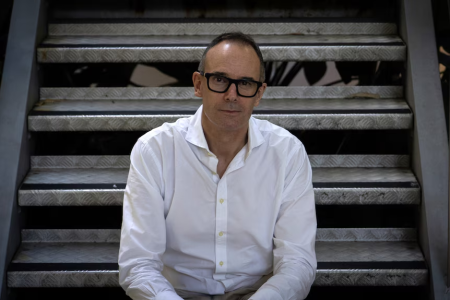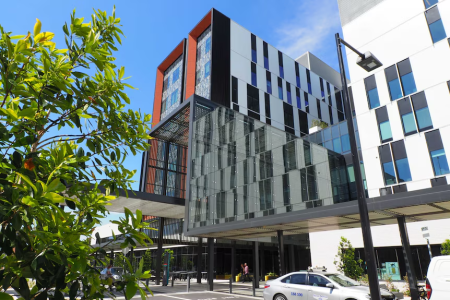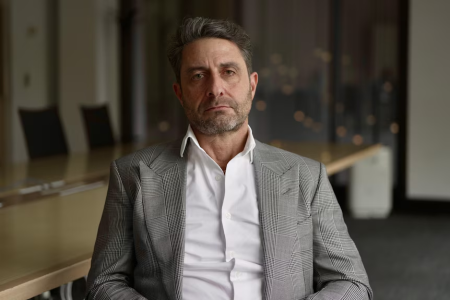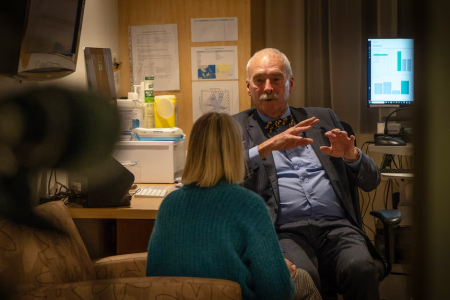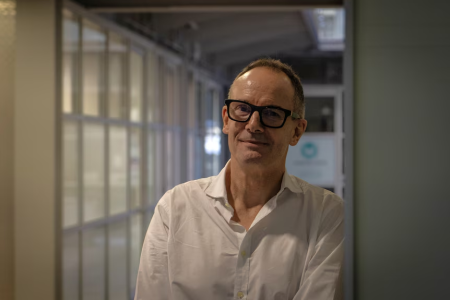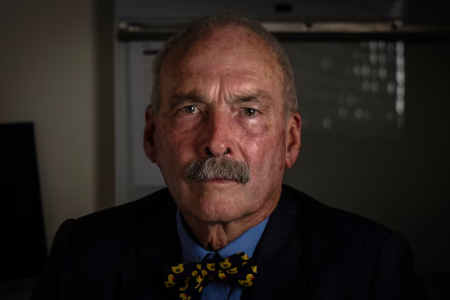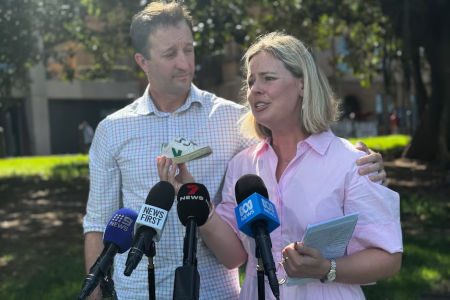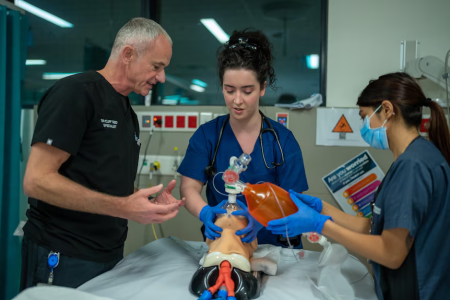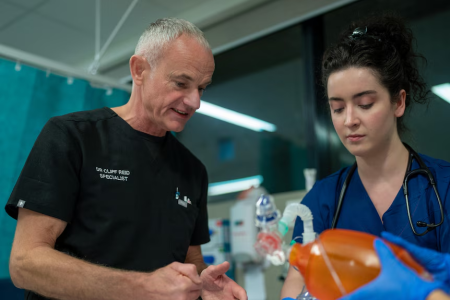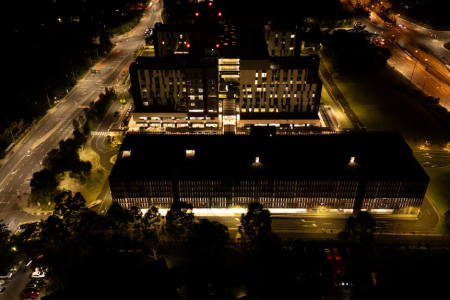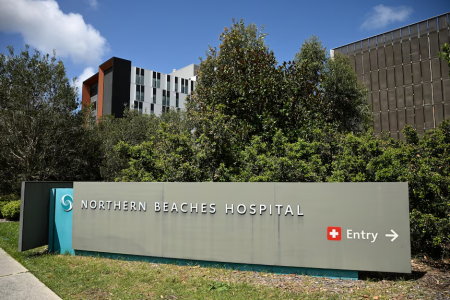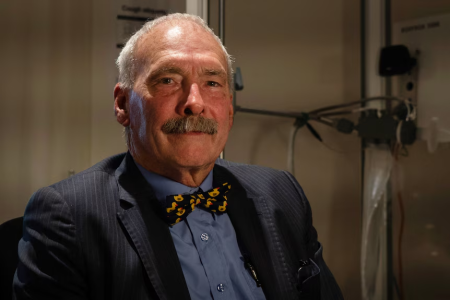Whistleblowers say warnings about patient safety at Northern Beaches Hospital were ignored
By
ABC News
- Replies 9
Whistleblowers from Sydney's Northern Beaches Hospital say repeated warnings about unsafe conditions have been ignored for years, as internal documents reveal a system in crisis.
Senior doctors have raised alarms about dangerously low levels of junior medical doctors, inadequate equipment, and failing technology since 2018.
They say many of those warnings were ignored, with internal documents revealing direct harm to patients.
A senior anaesthetist wrote that after hours there was no capacity within their team to deal with a third patient, whether that be an emergency caesarean or epidural, and that essential equipment was often left broken, with staff told to "steal one from another theatre".
In late 2023, 18 emergency department specialists formally warned Healthscope management that patient safety and staff wellbeing was at risk due to dangerously low night staffing, and severe access block with very sick patients being left in the waiting room and other unmonitored environments due to a lack of beds.
"We have all seen direct harm to patients from these occurrences and will expect further major harm if these issues are not resolved promptly," the group wrote.
Dr Patrick Coleman, a nephrologist who has worked at the hospital since its opening, said the crisis was predictable.
"It was never going to work.
"We were ignored. But that's exactly what happened."
Hospitals for sale
The 37 hospitals they run across Australia are now for sale.
Northern Beaches Hospital delivers public hospital services under a controversial public-private partnership.
NSW Health Minister Ryan Park told 7.30 the government was negotiating to bring the hospital into public hands, but warned it would not be cheap.
"There will be significant costs, without a doubt. We'll probably have to change the way in which it's staffed, there's likely to be issues with their IT system that we have to address – those two things alone are likely to be significant, we understand that," Mr Park said.
Healthscope CEO Tino La Spina welcomed the NSW government's plan to take over the hospital but warned the hospital system across Australia was in trouble, saying there was a "chronic underfunding of the private hospital sector by the private health insurers".
He says he is proud of Northern Beaches Hospital's overall performance record.
"We continue to operate a safe hospital there," he said.
"All of the key performance measures suggest that we are a safe hospital and safer than others in New South Wales."
Model 'utterly absurd'
Sydney's Northern Beaches were once served by two smaller public hospitals at Manly and Mona Vale.
But as the region's population grew, frontline staff said they were running on fumes.
"Manly and Mona Vale were getting death by 1,000 cuts," respiratory physician Keith Burgess said.
In 2014 the NSW Liberal government announced the two hospitals would be shut and replaced with a single, more modern facility, delivered through a public-private partnership (PPP).
It was a model with a troubled past. Previous PPP hospitals nationally had failed, including in Mildura, Victoria and Port Macquarie in New South Wales. But Professor Burgess said he was willing to give it a go.
His colleague Dr Coleman was optimistic at first.
"I thought, 'Hallelujah, finally we're going to have a new hospital,'" Dr Coleman said.
He joined the new hospital's medical advisory committee, eager to help shape the way the hospital would run.
But in the months leading up to the hospital opening, Dr Coleman raised urgent concerns.
He warned management their plan to hire too few junior doctors was dangerous for a facility expected to treat large numbers of older, more complex patients.
But he says his warnings were dismissed.
"I wasn't getting a response. I felt that I was wasting my time," he said.
Frustrated, he resigned from the medical advisory committee but kept raising the alarm.
"I said it verbally. I said it at meetings and I said it in writing. It didn't make any difference."\\
Engulfed in crisis
The hospital finally opened on October 30, 2018. The early days were rocky.
Within 48 hours the CEO quit. The anaesthetics department threatened a walkout and, according to Professor Burgess, conditions on the wards were chaotic.
"The Healthscope team hadn't stocked the shelves and a whole lot of the basic equipment was not available in the wards," he said.
Within eight months a parliamentary inquiry was launched into the hospital's operations and management.
Healthscope apologised and promised improvements.
In the years since, the Northern Beaches Hospital has been repeatedly engulfed in crises.
In February the family of two-year-old Joe Massa went public after his tragic death following critical delays in care at this hospital.
The backlash was swift. The NSW government proposed a ban on any future public-private hospital partnerships.
And in April the family of deceased toddler Harper Atkinson told 7.30 their story.
Emergency doctor Cliff Reid says his colleagues in the emergency department are bearing the brunt of public fury.
"Our team has been called 'baby killers'. A junior doctor has had a threat of her tyres being slashed as she was walking into the department," Dr Reid said.
Nurses have been spat on … all following recent negative publicity in the media about the hospital."
He said the community should trust the care they receive at the hospital.
Allegations of understaffing
Despite the concerns he has continued to raise Dr Coleman says patients receive an excellent level of care at the hospital, considering the low numbers of staff, when compared to other hospitals in the area.
However, he says it comes at a cost with staff stretched to breaking point.
7.30 has obtained internal hospital records and written staff testimonies that reveal the extent of the crisis.
In October 2024, a senior emergency physician warned the ED was fully staffed with junior doctors only 9 per cent of the time, which is just over 15 hours a week, and that the situation was expected to worsen this year.
Dr Reid has defended the hospital's executive, saying some of these concerns have been addressed.
"From a clinical service delivery point of view our emergency department is very highly performing, has amazing staff, an incredible high culture, a dedicated team that saves lives every day," he said.
Mr La Spina denied the hospital's problems were due to cost cutting.
"It's what we're all about here and we've got amazing clinicians that come to work every single day to give their best."
A second parliamentary inquiry into Northern Beaches Hospital is now underway.
And while submissions are confidential, 7.30 has obtained more distressing staff testimonies.
One anaesthetist wrote that staffing levels in their department were very unsafe and that on one occasion "we had absolutely zero capacity to deal with any emergency at all during a normal weekday".
He warned that after hours "there is no capacity for a third patient, whether it be for an emergency caesarean or an epidural for a woman in labour".
Trainee supervision is also falling far below national standards, according to the submission.
He wrote that anaesthetist trainees were supervised only 4 per cent of the time instead of the ANZCA (Australia New Zealand College of Anaesthetists) recommended 80 per cent, or a bare minimum of 50 per cent supervision.
The department's equipment was also highlighted, with the anaesthetist documenting that the hospital was failing to replace broken or missing essential equipment.
Ultrasound access for their department was documented as dangerously inadequate, as the unit had only two for 16 theatres, instead of the usual one per operating theatre.
"The cardiac anaesthetists have taken to stealing and deliberately hiding the ultrasound machines 'in case' they need it," he said.
The only other ultrasound technology available to their department is critically outdated.
The anaesthetist wrote that a sales representative once confessed to him that Northern Beaches Hospital bought the cheapest model and that "it is the only hospital in the world to buy this model".
Technology failing
Staff have raised concerns about inadequate technology since before the hospital opened its doors in October 2018.
However 7.30 can reveal that many of those issues persist, even seven years on.
In the medical staff council's submission to the auditor-general inquiry, it said that Riskman — the technology used to monitor adverse events — is grossly underused due to being excessively time-consuming and that the data obtained and used by Healthscope to reflect safety records may not be accurate.
Keith Burgess, president of the medical staff council, told 7.30 he had never used Riskman.
"Certainly I can't think of any senior doctor who has acknowledged that they've used it," he said.
Following the death of Joe Massa, the an independent review recommended critical changes were needed for the hospital's electronic medical records (EMR) system.
Dr Coleman says the EMR has had some improvements but it continues to be problematic to this day.
"The EMR system was constantly crashing. There were times when the EMR system was crashed for hours at a time," he said.
"Nobody can access the patient's medications. They can't alter the medications, they can't prescribe medications, they can't look at the patient's observations."
He says NSW Health and the local health district absolved itself of responsibility of the operation of the hospital and it should now be held accountable.
Written by Hagar Cohen and Hannah Meagher, ABC News.
Senior doctors have raised alarms about dangerously low levels of junior medical doctors, inadequate equipment, and failing technology since 2018.
They say many of those warnings were ignored, with internal documents revealing direct harm to patients.
A senior anaesthetist wrote that after hours there was no capacity within their team to deal with a third patient, whether that be an emergency caesarean or epidural, and that essential equipment was often left broken, with staff told to "steal one from another theatre".
In late 2023, 18 emergency department specialists formally warned Healthscope management that patient safety and staff wellbeing was at risk due to dangerously low night staffing, and severe access block with very sick patients being left in the waiting room and other unmonitored environments due to a lack of beds.
"We have all seen direct harm to patients from these occurrences and will expect further major harm if these issues are not resolved promptly," the group wrote.
Dr Patrick Coleman, a nephrologist who has worked at the hospital since its opening, said the crisis was predictable.
"It was never going to work.
"We were ignored. But that's exactly what happened."
Hospitals for sale
The 37 hospitals they run across Australia are now for sale.
Northern Beaches Hospital delivers public hospital services under a controversial public-private partnership.
NSW Health Minister Ryan Park told 7.30 the government was negotiating to bring the hospital into public hands, but warned it would not be cheap.
"There will be significant costs, without a doubt. We'll probably have to change the way in which it's staffed, there's likely to be issues with their IT system that we have to address – those two things alone are likely to be significant, we understand that," Mr Park said.
Healthscope CEO Tino La Spina welcomed the NSW government's plan to take over the hospital but warned the hospital system across Australia was in trouble, saying there was a "chronic underfunding of the private hospital sector by the private health insurers".
He says he is proud of Northern Beaches Hospital's overall performance record.
"We continue to operate a safe hospital there," he said.
"All of the key performance measures suggest that we are a safe hospital and safer than others in New South Wales."
Model 'utterly absurd'
Sydney's Northern Beaches were once served by two smaller public hospitals at Manly and Mona Vale.
But as the region's population grew, frontline staff said they were running on fumes.
"Manly and Mona Vale were getting death by 1,000 cuts," respiratory physician Keith Burgess said.
In 2014 the NSW Liberal government announced the two hospitals would be shut and replaced with a single, more modern facility, delivered through a public-private partnership (PPP).
It was a model with a troubled past. Previous PPP hospitals nationally had failed, including in Mildura, Victoria and Port Macquarie in New South Wales. But Professor Burgess said he was willing to give it a go.
His colleague Dr Coleman was optimistic at first.
"I thought, 'Hallelujah, finally we're going to have a new hospital,'" Dr Coleman said.
He joined the new hospital's medical advisory committee, eager to help shape the way the hospital would run.
But in the months leading up to the hospital opening, Dr Coleman raised urgent concerns.
He warned management their plan to hire too few junior doctors was dangerous for a facility expected to treat large numbers of older, more complex patients.
But he says his warnings were dismissed.
"I wasn't getting a response. I felt that I was wasting my time," he said.
Frustrated, he resigned from the medical advisory committee but kept raising the alarm.
"I said it verbally. I said it at meetings and I said it in writing. It didn't make any difference."\\
Engulfed in crisis
The hospital finally opened on October 30, 2018. The early days were rocky.
Within 48 hours the CEO quit. The anaesthetics department threatened a walkout and, according to Professor Burgess, conditions on the wards were chaotic.
"The Healthscope team hadn't stocked the shelves and a whole lot of the basic equipment was not available in the wards," he said.
Within eight months a parliamentary inquiry was launched into the hospital's operations and management.
Healthscope apologised and promised improvements.
In the years since, the Northern Beaches Hospital has been repeatedly engulfed in crises.
In February the family of two-year-old Joe Massa went public after his tragic death following critical delays in care at this hospital.
The backlash was swift. The NSW government proposed a ban on any future public-private hospital partnerships.
And in April the family of deceased toddler Harper Atkinson told 7.30 their story.
Emergency doctor Cliff Reid says his colleagues in the emergency department are bearing the brunt of public fury.
"Our team has been called 'baby killers'. A junior doctor has had a threat of her tyres being slashed as she was walking into the department," Dr Reid said.
Nurses have been spat on … all following recent negative publicity in the media about the hospital."
He said the community should trust the care they receive at the hospital.
Allegations of understaffing
Despite the concerns he has continued to raise Dr Coleman says patients receive an excellent level of care at the hospital, considering the low numbers of staff, when compared to other hospitals in the area.
However, he says it comes at a cost with staff stretched to breaking point.
7.30 has obtained internal hospital records and written staff testimonies that reveal the extent of the crisis.
In October 2024, a senior emergency physician warned the ED was fully staffed with junior doctors only 9 per cent of the time, which is just over 15 hours a week, and that the situation was expected to worsen this year.
Dr Reid has defended the hospital's executive, saying some of these concerns have been addressed.
"From a clinical service delivery point of view our emergency department is very highly performing, has amazing staff, an incredible high culture, a dedicated team that saves lives every day," he said.
Mr La Spina denied the hospital's problems were due to cost cutting.
"It's what we're all about here and we've got amazing clinicians that come to work every single day to give their best."
A second parliamentary inquiry into Northern Beaches Hospital is now underway.
And while submissions are confidential, 7.30 has obtained more distressing staff testimonies.
One anaesthetist wrote that staffing levels in their department were very unsafe and that on one occasion "we had absolutely zero capacity to deal with any emergency at all during a normal weekday".
He warned that after hours "there is no capacity for a third patient, whether it be for an emergency caesarean or an epidural for a woman in labour".
Trainee supervision is also falling far below national standards, according to the submission.
He wrote that anaesthetist trainees were supervised only 4 per cent of the time instead of the ANZCA (Australia New Zealand College of Anaesthetists) recommended 80 per cent, or a bare minimum of 50 per cent supervision.
The department's equipment was also highlighted, with the anaesthetist documenting that the hospital was failing to replace broken or missing essential equipment.
Ultrasound access for their department was documented as dangerously inadequate, as the unit had only two for 16 theatres, instead of the usual one per operating theatre.
"The cardiac anaesthetists have taken to stealing and deliberately hiding the ultrasound machines 'in case' they need it," he said.
The only other ultrasound technology available to their department is critically outdated.
The anaesthetist wrote that a sales representative once confessed to him that Northern Beaches Hospital bought the cheapest model and that "it is the only hospital in the world to buy this model".
Technology failing
Staff have raised concerns about inadequate technology since before the hospital opened its doors in October 2018.
However 7.30 can reveal that many of those issues persist, even seven years on.
In the medical staff council's submission to the auditor-general inquiry, it said that Riskman — the technology used to monitor adverse events — is grossly underused due to being excessively time-consuming and that the data obtained and used by Healthscope to reflect safety records may not be accurate.
Keith Burgess, president of the medical staff council, told 7.30 he had never used Riskman.
"Certainly I can't think of any senior doctor who has acknowledged that they've used it," he said.
Following the death of Joe Massa, the an independent review recommended critical changes were needed for the hospital's electronic medical records (EMR) system.
Dr Coleman says the EMR has had some improvements but it continues to be problematic to this day.
"The EMR system was constantly crashing. There were times when the EMR system was crashed for hours at a time," he said.
"Nobody can access the patient's medications. They can't alter the medications, they can't prescribe medications, they can't look at the patient's observations."
He says NSW Health and the local health district absolved itself of responsibility of the operation of the hospital and it should now be held accountable.
Written by Hagar Cohen and Hannah Meagher, ABC News.

